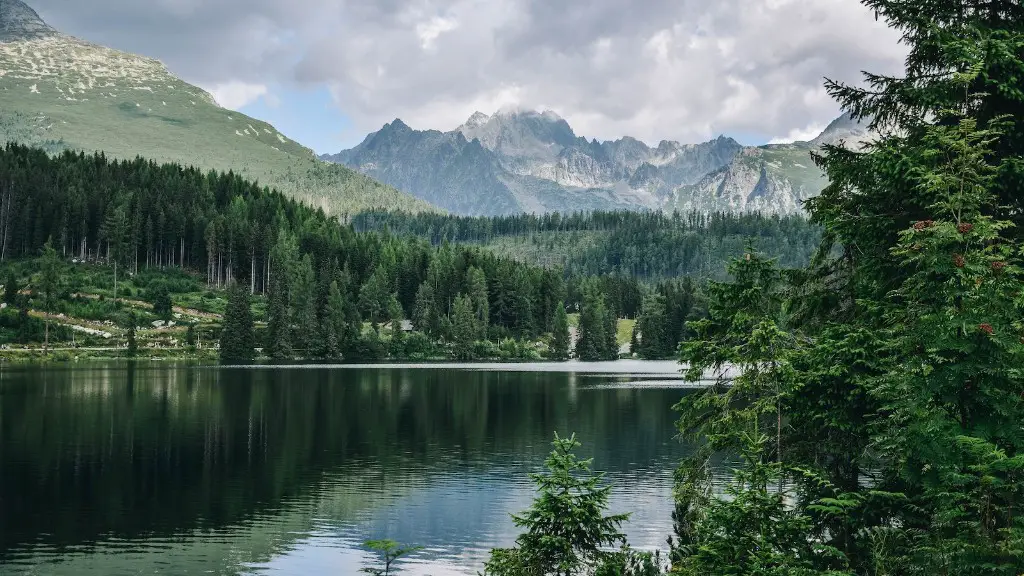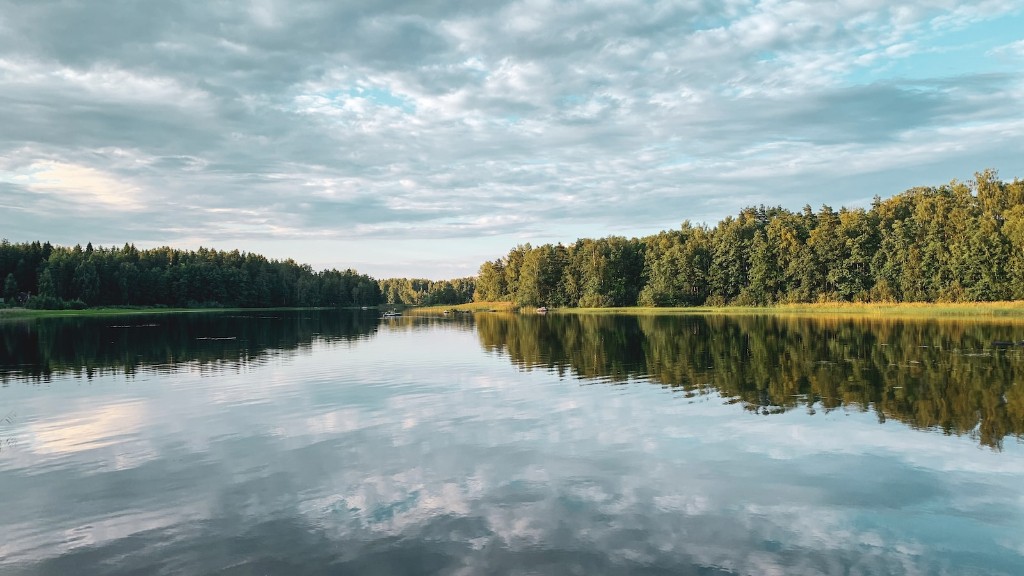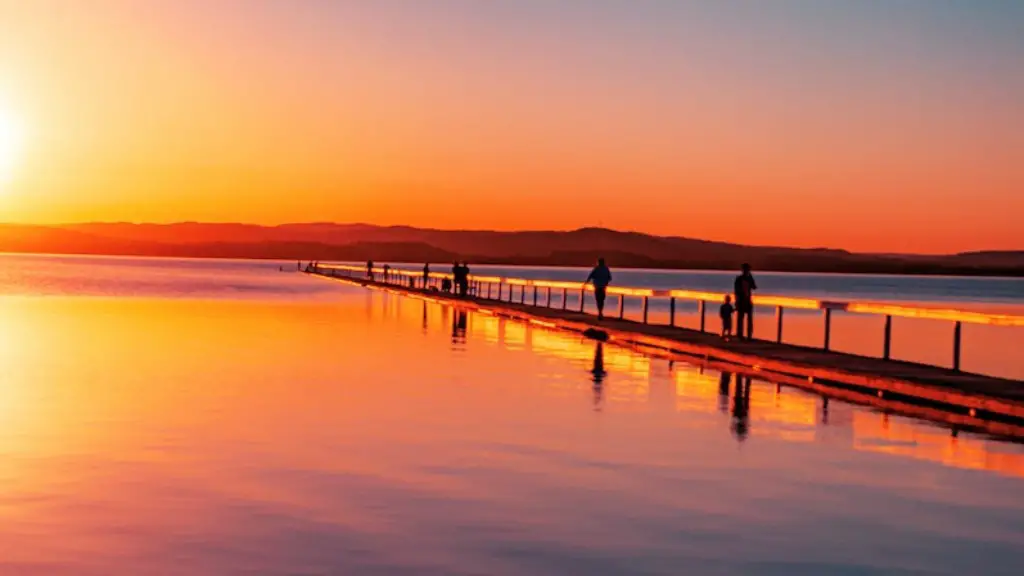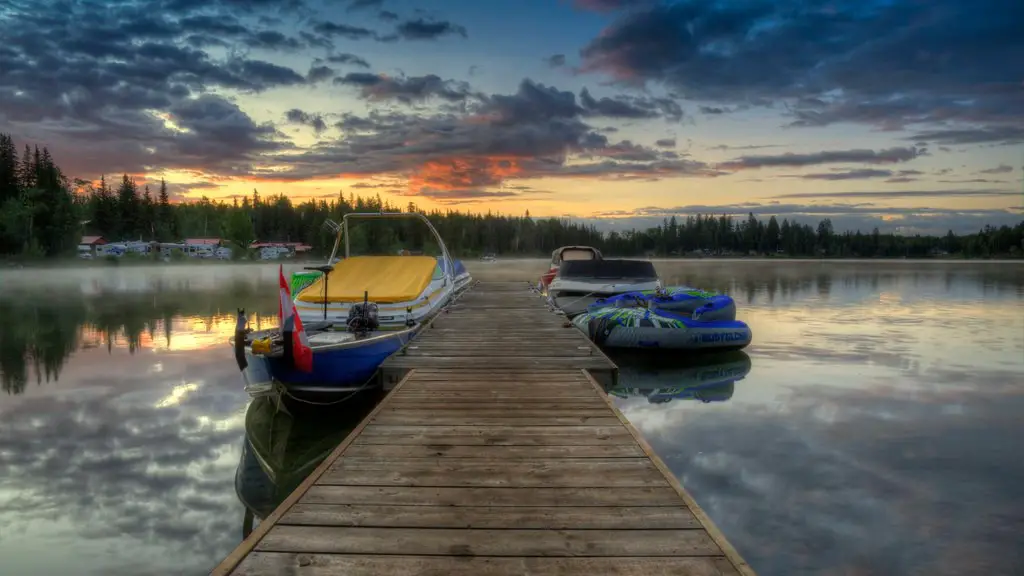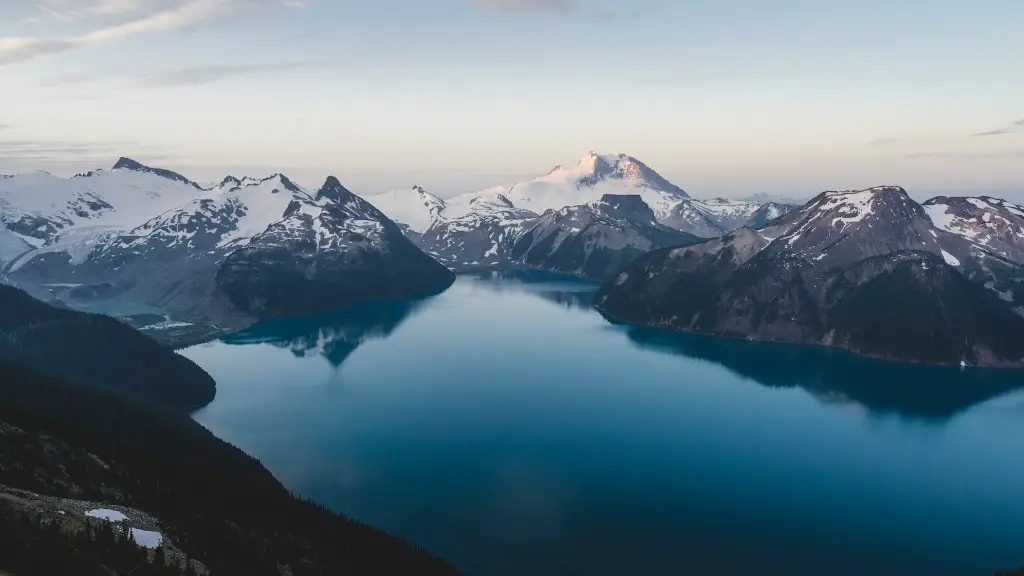Introduction to Lake Victoria
Lake Victoria is the second largest freshwater lake in the world. It is shared by three countries; Uganda, Kenya and Tanzania. The lake is of great significance to the countries, as it is the source of the Nile river, the longest river in the world, and is also a source of livelihood for many people living near it.
The lake has become an increasingly important source of fresh water and hydroelectric power in the region, along with supporting a thriving fishing industry. The fisheries of Lake Victoria are especially valuable as a source of food, providing employment and incomes for many of the rural poor. Numerous species of birds and mammals are also found in and around Lake Victoria.
Economic Impact of Lake Victoria
The lake’s impact on the surrounding countries is not limited to just fisheries and power generation. The lake supplies drinking water to millions of people living in the region, and it is considered a critical resource for many communities. The lake is also a key tourist attraction and recreation area for many of the area’s residents.
The lake provides a great deal of economic benefits to the countries that share it. For example, it provides employment opportunities in fisheries and tourism, as well as hydroelectric power. In addition, it provides a critical source of water for irrigation, which is necessary for the production of food and other agricultural products. The lake also serves as an important source of transportation for people and goods.
Despite its economic benefits, Lake Victoria also comes with its share of environmental challenges. Pollution and overfishing have taken a heavy toll on the lake, leading to weakened fish stocks and poor water quality. As a result, the lake is becoming increasingly eutrophic – its waters contain too much phosphorus and other nutrients, leading to algal blooms that reduce oxygen in the water and endanger the flora and fauna of the lake.
Cultural Significance of Lake Victoria
Lake Victoria has an immense cultural and historic significance to the communities around it. Its shores have been home to many different peoples for thousands of years, and it has been an important spiritual and religious symbol in the region. It is believed to be the birthplace of the Gishu tribe and its legendary ruler, Lwanda Magara.
The lake also has a long history as a meeting place for trade and diplomacy among the various local peoples. This has made it an important center of commerce, as well as a place of intercultural exchange and dialogue. Even today it remains an important site of commerce, trade and interaction for the people in the region.
The lake also serves an important festive and recreational purpose, with many festivals and other recreational activities taking place on its shores throughout the year. From fishing competitions to boat races, the lake provides a rich cultural experience for everyone that visits it.
Environmental Challenges of Lake Victoria
Despite its great importance and cultural significance, Lake Victoria faces many environmental challenges. Pollution from nearby industries has caused dramatic decreases in water quality and has put the lake’s sustainability at risk. In addition, overfishing has led to a dramatic decrease in fish stocks, threatening the livelihoods of those who depend on it for their income.
The challenge of restoring Lake Victoria to its former glory is complicated by the fact that it is shared by three countries, with each country having its own interests and goals. Concerted effort between the countries is necessary in order to ensure that the lake is managed in a sustainable manner and its resources are conserved for future generations.
Preserving Lake Victoria
The countries surrounding Lake Victoria are working together to address the ecological and socioeconomic challenges the lake is facing. Long-term strategies have been put in place to restore the lake’s fisheries and protect its water quality, as well as to reduce overfishing and pollution. In addition, the World Bank and other international donors are providing funds for projects aimed at improving sanitation, access to clean water and fishing rights.
The countries are also working towards better regional cooperation to deal with broader issues such as climate change, which poses a major threat to the lake and the communities surrounding it. In addition, joint efforts are being made to develop infrastructure projects, such as better roads and railways, that will help increase the lake’s economic and cultural value while preserving its unique environment.
Conservation Efforts
The surrounding countries and other international organizations have come together to create the East African Community (EAC), an organization dedicated to the conservation of Lake Victoria and its resources. The EAC is working to create cross-border agreements, such as the Lake Victoria Environmental Management Program (LVEMP), which is a comprehensive plan to address the lake’s pollution problems.
In addition, the EAC has taken a leading role in advocating for the conservation and protection of the lake’s natural resources. This includes increasing public awareness about the lake’s environmental issues, strengthening policy instruments, and providing funds to support conservation efforts.
Another important conservation effort is the International Institute for Sustainable Development’s Lake Victoria Rivers Rescue project, which aims to clean up the lake’s polluted waters and improve the livelihoods of local communities that are dependent on it.
Conclusion
Lake Victoria is an important source of fresh water, hydroelectric power and livelihoods to the three countries that share it. It is also a significant spiritual, cultural and recreational site for the people who live around it. Unfortunately, Lake Victoria is also facing many environmental challenges, such as pollution and overfishing. In order to ensure a sustainable future for the lake, concerted effort is needed from the surrounding countries and other international organizations. By working together and putting in place long-term strategies, the people of East Africa can work to preserve Lake Victoria and its invaluable resources.
